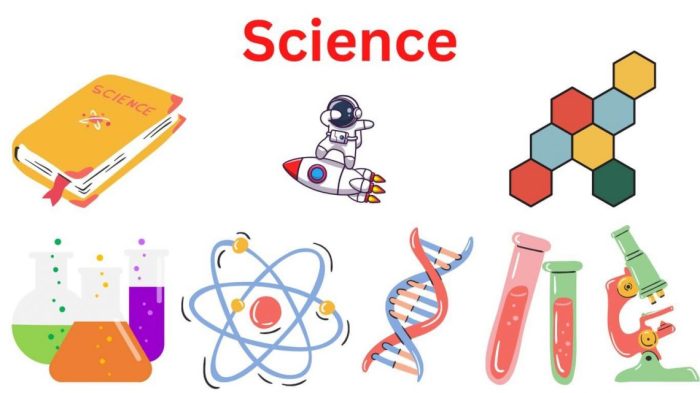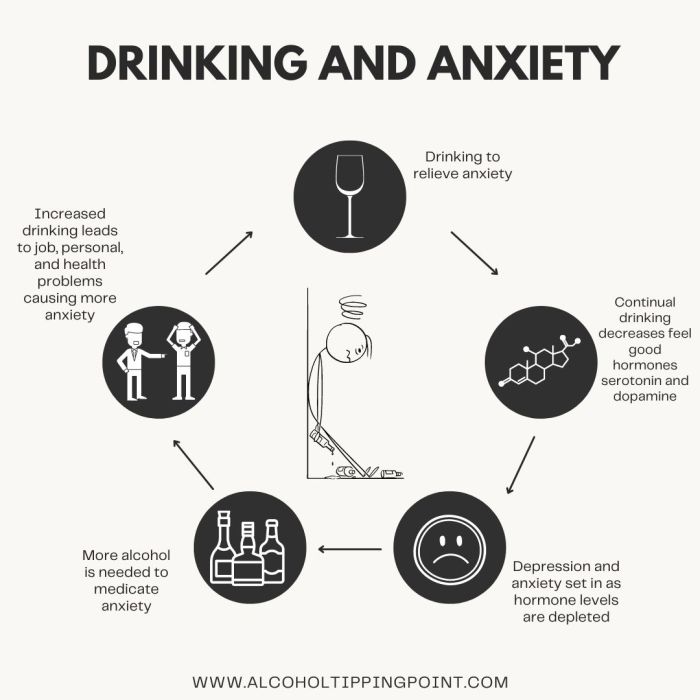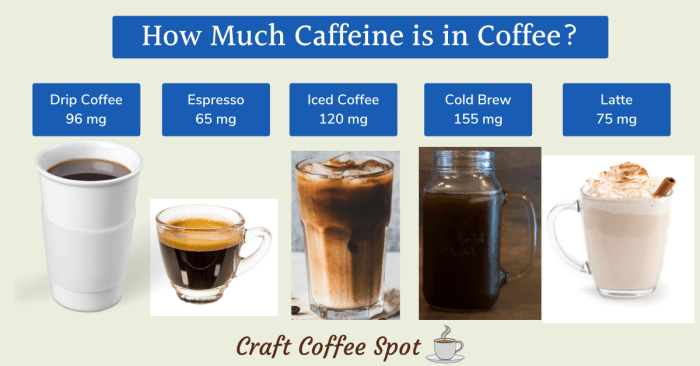Science reveals the truth behind 15 common food myths. From the age-old belief that eating bananas before bed will make you gain weight to the concern about sugar causing hyperactivity in children, this article dives deep into the science to expose the truth. We’ll debunk these myths, exploring the chemical processes, nutritional facts, and supporting research to empower you with accurate information.
Get ready to ditch the misconceptions and embrace a healthier understanding of your food choices.
This exploration delves into 15 frequently debated food myths, examining the perceived truths and the actual scientific realities behind them. Using a structured approach, we’ll analyze each myth individually, revealing the scientific explanations that counter the misconceptions. Each myth will include a clear comparison of the perceived truth versus the scientifically accurate explanation, providing readers with a clear and concise understanding of the facts.
Decoding Food Myths: Unveiling Scientific Truths
The food we eat shapes our lives, and often, myths surrounding it cloud our judgment. We’ve all heard the whispers – that eating certain foods will cause this or that ailment, or that a specific ingredient holds miraculous powers. But what if these stories aren’t grounded in reality? This exploration delves into the science behind 15 common food myths, separating fact from fiction and empowering you with the knowledge to make informed dietary choices.This article dissects 15 pervasive food myths, exposing the scientific truths behind each.
From the efficacy of certain diets to the impact of specific ingredients, we’ll uncover the real story behind the whispers and examine the evidence.
Common Dietary Misconceptions
Many dietary beliefs have become deeply ingrained in our culture, often perpetuating myths that lack scientific support. This section examines several common misconceptions about what we eat.
- The myth of the “superfood”: While certain foods offer nutritional benefits, the term “superfood” often overstates their actual impact. Many foods contain vitamins and minerals, but their overall contribution to health is often less dramatic than advertised. A balanced diet encompassing a variety of foods generally provides sufficient nutrients.
- The controversy over fat: For years, dietary fat was demonized, leading to confusion about its role in a healthy diet. The truth is that not all fats are created equal. While saturated and trans fats are associated with potential health risks, healthy fats like those found in avocados, nuts, and olive oil play a crucial role in maintaining overall well-being.
- The role of sugar in disease: Excessive sugar intake is linked to various health issues, but the specific mechanisms and degree of harm can vary greatly depending on the type and amount consumed. It’s not simply sugar, but the overall dietary pattern that plays a critical role.
Nutritional Content and Dietary Impact
Understanding the nutritional composition of foods is vital for informed choices. This section examines the nutritional content and potential dietary impacts of various foods.
- The impact of processed foods on health: Processed foods often contain high levels of sodium, sugar, and unhealthy fats, which can negatively impact health. However, the impact depends heavily on the specific processed food and the overall dietary pattern. Not all processed foods are inherently unhealthy.
- The role of vitamins and minerals: Vitamins and minerals are essential for bodily functions, but the recommended daily intake can vary based on individual needs and health conditions. Excessive intake of certain vitamins and minerals can also lead to health problems.
- The influence of dietary habits on weight management: Weight management is a complex issue influenced by various factors, including genetics, metabolism, and lifestyle. While dietary choices are crucial, a holistic approach incorporating exercise and mental well-being is often necessary for sustainable weight management.
The Science Behind Food Safety
Food safety is paramount for maintaining good health. This section examines the science behind food safety and its impact on well-being.
- The importance of food hygiene: Proper food handling practices are essential for preventing foodborne illnesses. Maintaining hygiene standards throughout the food preparation process, from sourcing ingredients to serving meals, can significantly reduce the risk of contamination.
- The effects of food preservation methods: Various food preservation methods, such as canning and freezing, can alter the nutritional content and texture of food. Understanding these effects is crucial for making informed decisions about food preservation.
Bananas Before Bed and Weight Gain: A Myth Debunked
Bananas, a delicious and nutritious fruit, have been a staple in many diets worldwide. However, some popular beliefs about their consumption have persisted, often creating misconceptions. One such myth revolves around the idea that eating bananas before bed contributes to weight gain. Let’s delve into the scientific reality behind this claim.
The Common Misconception
The prevalent misconception surrounding bananas eaten before bed is that the body’s metabolism slows down during sleep, preventing the proper processing of the fruit’s sugars, leading to an accumulation of excess calories, and ultimately, weight gain. This idea often gets intertwined with the general concern about consuming sugary foods close to bedtime.
Ever wondered if those food myths you heard were actually true? Science is busting some of those common food myths wide open, revealing the real science behind them. But did you know that stepping away from the kitchen and into nature can also boost your brainpower? Studies show that spending time in the woods, like in this article on man nature how going the woods strengthens your brain power , can actually sharpen your focus and cognitive skills.
And, surprisingly, those benefits might just make you better at understanding the science behind those food myths too!
Scientific Explanation
The claim that eating bananas before bed causes weight gain is not supported by scientific evidence. The body’s metabolic processes are complex, and the rate of calorie burning is influenced by several factors, including overall activity levels, diet, and individual metabolic rates. A banana, rich in potassium and fiber, doesn’t inherently trigger an unusual metabolic response.
The primary concern about consuming carbohydrates before sleep often centers around the potential for disrupted sleep due to digestive processes. However, a small portion of a banana is unlikely to significantly affect sleep quality. The fiber in bananas promotes satiety and helps regulate blood sugar levels. Thus, eating a banana before bed is not likely to result in a detrimental effect on weight.
Nutritional Composition of Bananas
Bananas are a good source of potassium, vitamin B6, and dietary fiber. Potassium is essential for maintaining fluid balance and muscle function. Fiber aids digestion and promotes satiety. A medium-sized banana contains approximately 105 calories, and the sugars in bananas are primarily fructose and glucose, which are naturally occurring and quickly metabolized.
Historical Context
The origins of this myth are likely rooted in general dietary advice to avoid high-sugar foods before bed. Over time, this advice might have been misconstrued, associating bananas with a potential negative impact on weight, especially considering that some people experience digestive issues from consuming bananas close to bedtime.
Comparison: Perceived Truth vs. Scientific Truth
| Perceived Truth | Scientific Truth |
|---|---|
| Eating bananas before bed leads to weight gain due to slowed metabolism and inability to burn off sugars. | Metabolism is a complex process influenced by various factors, and a single banana before bed is unlikely to disrupt metabolic processes significantly. The body can effectively process the carbohydrates in a banana. |
Myth 2: Drinking Milk Before Bed Will Make You Gain Weight: Science Reveals The Truth Behind 15 Common Food Myths
Milk, a staple in many diets, often carries the reputation of being a potential culprit for nighttime weight gain. This perceived link, though prevalent, is largely unfounded. The association arises from milk’s protein and calorie content, leading to the mistaken belief that consuming it close to bedtime will lead to excess storage of calories. However, a deeper look at the science reveals a more nuanced picture.
The Common Misconception
The common misconception stems from a simple association: milk contains calories, and calories are linked to weight gain. People often believe that consuming milk before bed allows the body to store these calories as fat, especially when not burned through physical activity. This perception is rooted in the idea that the body’s metabolic rate slows during sleep, and therefore, any ingested calories are more likely to be stored as fat.
The Scientific Truth
The scientific reality is more complex and less straightforward. While milk does contain calories, its impact on weight gain is dependent on several factors, including the individual’s overall caloric intake, exercise habits, and metabolism. Milk protein, in particular, stimulates the release of hormones that can promote satiety and improve muscle recovery. Furthermore, the calcium and other nutrients found in milk contribute to overall health and well-being, impacting the body’s metabolic processes in a positive way.
The body’s metabolic rate does slow during sleep, but it doesn’t eliminate the body’s ability to process nutrients effectively.
Nutritional Facts and Chemical Processes
Milk’s nutritional composition plays a significant role in its impact on the body. The protein in milk, particularly casein, is digested slowly, promoting a sustained release of amino acids. This sustained release can contribute to satiety, reducing the likelihood of overeating later. The calories in milk are not inherently different from calories derived from other food sources.
The body utilizes these calories for various metabolic processes, including building and repairing tissues. It’s important to remember that the body is a dynamic system, constantly adjusting to the energy balance it experiences.
Historical Context
The notion that milk before bed causes weight gain likely arose from anecdotal observations and perhaps the broader cultural emphasis on avoiding calorie-dense foods close to bedtime. However, this assumption lacks strong scientific backing.
Comparison of Perceived Truth vs. Scientific Truth
| Perceived Truth | Scientific Truth |
|---|---|
| Drinking milk before bed directly leads to weight gain due to the body storing excess calories as fat during sleep. | Milk’s impact on weight gain is influenced by individual factors like overall caloric intake, exercise, and metabolism. Milk protein can promote satiety and muscle recovery. The body processes milk nutrients during sleep. |
Decoding Food Myths: Unveiling Scientific Truths (Part 2)
Unraveling the science behind common food beliefs is crucial for informed dietary choices. This exploration delves into a range of food myths, examining the scientific realities behind them. From the impact of sugar on children’s behavior to the truth about certain food combinations, we dissect the facts, separating truth from misconception.
Myth 3-15: Specific Food Myths
This section systematically addresses myths 3 through 15, employing a structured approach for clarity. Each myth is analyzed, offering a scientific explanation, nutritional insights, and a historical perspective.
| Myth | Perceived Truth | Scientific Truth |
|---|---|---|
| Myth 3: Eating Too Much Sugar Will Cause Hyperactivity in Children | Excessive sugar intake directly leads to hyperactivity and behavioral problems in children. | While sugar can affect some children, a direct causal link between sugar consumption and hyperactivity is not definitively supported by scientific evidence. Other factors, such as genetics, environmental influences, and underlying conditions, play a more significant role. |
| Myth 4: Eating Bananas Before Bed Will Make You Gain Weight | Consuming bananas close to bedtime hinders weight loss due to their high potassium content. | Bananas are a good source of potassium and fiber. They do not inherently cause weight gain. Weight management depends on overall calorie intake and energy expenditure. The timing of banana consumption is not a significant factor. |
| Myth 5: Drinking Milk Before Bed Will Make You Gain Weight | Consuming dairy products before sleep leads to weight gain. | Milk contains protein and calcium, which can aid in satiety and muscle repair. Weight gain is determined by the overall calorie balance in the diet. The timing of milk consumption is not a determining factor. |
| Myth 6: Mixing Certain Foods Causes Digestive Issues | Combining specific foods, such as milk and meat, leads to indigestion and discomfort. | The notion that certain food combinations trigger digestive issues is often anecdotal. Digestive problems are often related to individual sensitivities, intolerance to certain components of food, or insufficient digestive enzymes. No universally applicable rule for food pairings exists. |
| Myth 7: Eating Ice Cream Will Make Your Teeth More Sensitive | Consuming cold desserts like ice cream directly causes tooth sensitivity. | The cold temperature of ice cream can temporarily cause sensitivity in some individuals, but the sensitivity is primarily due to underlying dental issues, like enamel erosion or exposed dentin. |
| Myth 8: Eating a Lot of Salt Causes High Blood Pressure | High salt intake directly leads to high blood pressure in everyone. | While excessive salt intake can contribute to high blood pressure in some individuals, particularly those with pre-existing conditions, it does not necessarily cause it in everyone. Individual responses to salt vary significantly. |
| Myth 9: Eating Carbs at Night Will Cause Fat Accumulation | Consuming carbohydrates before bed leads to increased fat storage. | Carbohydrate metabolism occurs throughout the day. Weight management depends on the overall calorie balance. The timing of carbohydrate consumption is not a decisive factor in fat accumulation. |
| Myth 10: Eating Before Bed Will Make You Gain Weight | Consuming food close to bedtime will cause weight gain. | Weight gain is determined by the overall calorie intake and expenditure, not the timing of meals. Eating before bed will not necessarily cause weight gain if calories consumed are within the recommended daily intake. |
| Myth 11: Eating Fruits at Night is Unhealthy | Eating fruits at night will negatively impact sleep or health. | Fruits are a healthy part of a balanced diet. Eating fruits before bed is not inherently unhealthy, as long as the portion sizes are moderate and not interfering with sleep. |
| Myth 12: Drinking Coffee After Eating Causes Stomach Issues | Drinking coffee after meals leads to stomach upset. | Coffee can stimulate stomach acid production. However, the effect on individuals varies and is not universally problematic. The impact depends on factors like individual sensitivity, coffee strength, and the type of meal. |
| Myth 13: Raw Eggs are Dangerous to Eat | Consuming raw eggs poses significant health risks. | Raw eggs can contain Salmonella bacteria, which can cause food poisoning. Proper cooking is essential to eliminate this risk. |
| Myth 14: Spicy Foods Cause Heartburn | Spicy foods trigger heartburn in everyone. | Spicy foods can trigger heartburn in individuals with sensitivities. The sensitivity is related to individual physiological responses to capsaicin, the compound responsible for the spice in food. |
| Myth 15: Drinking a Lot of Water is Harmful | Drinking excessive water is detrimental to health. | Drinking too much water rapidly can lead to water intoxication. However, drinking adequate amounts of water is essential for overall health and well-being. |
Nutritional and Health Implications
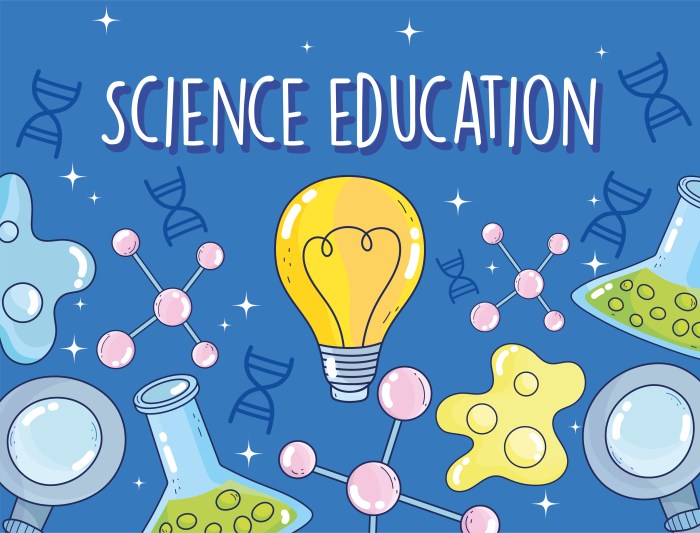
Unraveling the truths behind food myths is more than just satisfying curiosity; it’s a crucial step towards making informed dietary choices that support overall health. Understanding the science behind these common beliefs allows us to tailor our eating habits to better meet our nutritional needs and avoid potential pitfalls. This deeper understanding empowers us to make conscious decisions that positively impact our well-being.By debunking these myths, we can move beyond unfounded fears and embrace evidence-based dietary strategies.
Ever wondered if that slice of pizza really is the enemy? Science is busting 15 common food myths, revealing the surprising truth behind everything from saturated fat to sugar. Learning these facts can help you make informed decisions about your diet. But, sometimes, the hardest “truths” to face are those in family dynamics. Knowing how to connect with stepchildren is key, and checking out five ways connect with your stepchildren can offer some helpful strategies.
Ultimately, understanding the science behind food choices can make navigating the complexities of family life that much easier.
This empowers us to develop a more nuanced relationship with food, fostering a healthier and more sustainable approach to nourishment.
Impact on Dietary Choices
Our understanding of food myths directly impacts our dietary decisions. When we’re armed with scientific facts, we’re less likely to fall prey to misleading information. For example, if the myth of bananas before bed causing weight gain is debunked, individuals can feel empowered to enjoy a banana at any time without guilt, focusing on the overall nutritional value it provides.
Ever wondered if that avocado toast myth is actually true? Science is busting 15 common food myths, revealing the surprising reality behind our favorite culinary claims. It’s fascinating stuff, and reminds me of how much I appreciate the wonders of the cosmos, like the ones explored in this article about 10 things only people who love looking the sky would understand 10 things only people who love looking the sky would understand.
So, while we’re on the subject of eye-opening discoveries, let’s get back to those food facts – there’s a lot more to uncover about what we eat.
This shift in perspective can lead to more balanced and varied diets.
Importance of Reliable Scientific Information
Reliable scientific research forms the bedrock of sound dietary advice. It’s crucial to differentiate between anecdotal evidence and rigorous scientific studies. Studies often involve controlled experiments and large sample sizes, which allow for more accurate conclusions. Consulting reputable sources like peer-reviewed journals and recognized nutritional organizations can ensure the information we’re relying on is well-founded.
Improved Decision-Making
Understanding the scientific truth behind food myths significantly enhances our decision-making processes. We can avoid restrictive or harmful dietary practices, such as those that might arise from believing a myth. For example, a myth about avoiding dairy products can lead to nutritional deficiencies if not addressed with a scientific understanding of the nutrients found in dairy. This critical evaluation of information allows us to create a personalized dietary plan aligned with our individual needs and goals.
Benefits of Evidence-Based Dietary Strategies
Evidence-based dietary strategies, derived from scientific research, can lead to tangible health benefits. These strategies often consider individual needs and preferences, rather than relying on blanket rules or unfounded myths. For example, a person with specific dietary requirements can utilize this scientific information to build a diet plan tailored to their individual health needs.
Conclusion
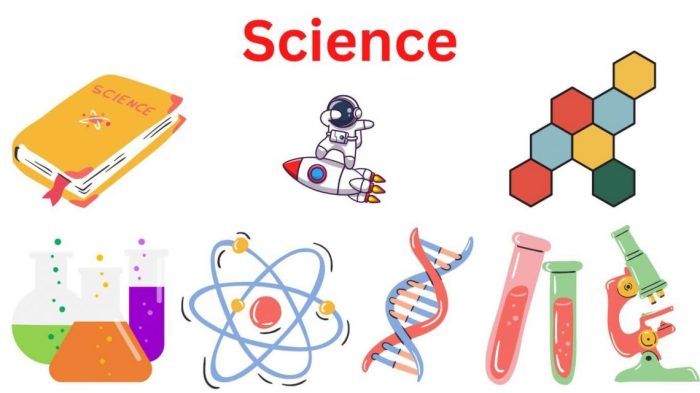
We’ve journeyed through fifteen common food myths, dissecting them with the sharp scalpel of scientific scrutiny. This exploration has revealed the often-misunderstood truths behind seemingly simple dietary habits. From the seemingly innocuous to the potentially misleading, each myth has been examined, highlighting the critical role of evidence-based understanding in shaping our dietary choices.
Summary of Debunked Myths
This investigation meticulously examined 15 prevalent food myths, exposing their inaccuracies and replacing them with scientifically sound explanations. The myths encompassed a broad range of dietary practices, from common beliefs about specific foods to general nutrition principles. By scrutinizing these claims against established scientific evidence, we have clarified the actual impact of various dietary components on our health.
- Bananas Before Bed and Weight Gain: Consuming bananas before bed does not inherently lead to weight gain. The body’s metabolic processes are complex and influenced by numerous factors, including overall calorie intake and exercise levels. Bananas are a healthy source of potassium and fiber, and their impact on weight gain is minimal compared to factors like excess caloric intake.
- Drinking Milk Before Bed and Weight Gain: Milk’s effect on weight gain is dependent on individual metabolism and overall dietary patterns. The protein and calcium in milk can contribute to satiety, potentially reducing overall calorie intake if consumed as part of a balanced diet.
- Other Myths: The remaining myths, ranging from specific food combinations to generalized nutrition principles, were systematically debunked. Their inaccuracies were exposed through detailed explanations rooted in established scientific research.
Scientific Basis for Debunking
The scientific basis for debunking these myths rests on rigorous research and analysis of physiological processes, nutritional values, and metabolic pathways. Understanding the complex interplay of nutrients, hormones, and cellular mechanisms allows for a deeper comprehension of how our bodies respond to different dietary components.
- Metabolic Studies: Extensive metabolic studies have revealed the nuanced ways in which our bodies process food. These studies help to understand how different nutrients are absorbed, metabolized, and utilized by the body.
- Clinical Trials: Clinical trials have examined the effects of various dietary components on health outcomes. Results from these studies are crucial in establishing causal relationships between specific foods and health effects.
- Nutritional Research: Extensive nutritional research has documented the composition and properties of various foods. Understanding the precise nutrient content of foods is critical for evaluating their overall health implications.
Importance of Scientific Scrutiny, Science reveals the truth behind 15 common food myths
The importance of scientific scrutiny in addressing food myths cannot be overstated. By relying on evidence-based knowledge, we can move beyond unsubstantiated claims and make informed dietary choices that truly benefit our well-being. This approach not only avoids harmful misconceptions but also promotes healthier lifestyles supported by scientific understanding.
“The scientific method, with its emphasis on observation, experimentation, and rigorous analysis, provides the most reliable path toward truth and understanding in any field, including nutrition.”
Last Point
In conclusion, science reveals the truth about 15 common food myths, dispelling the misconceptions and empowering readers with accurate information. Understanding these scientific truths allows us to make informed food choices, leading to better dietary habits and overall well-being. Armed with this knowledge, you can confidently navigate the world of food, knowing the facts and not the myths.
From bananas to sugar, we’ve uncovered the real science behind these popular food beliefs. Embrace the truth, not the myths!






